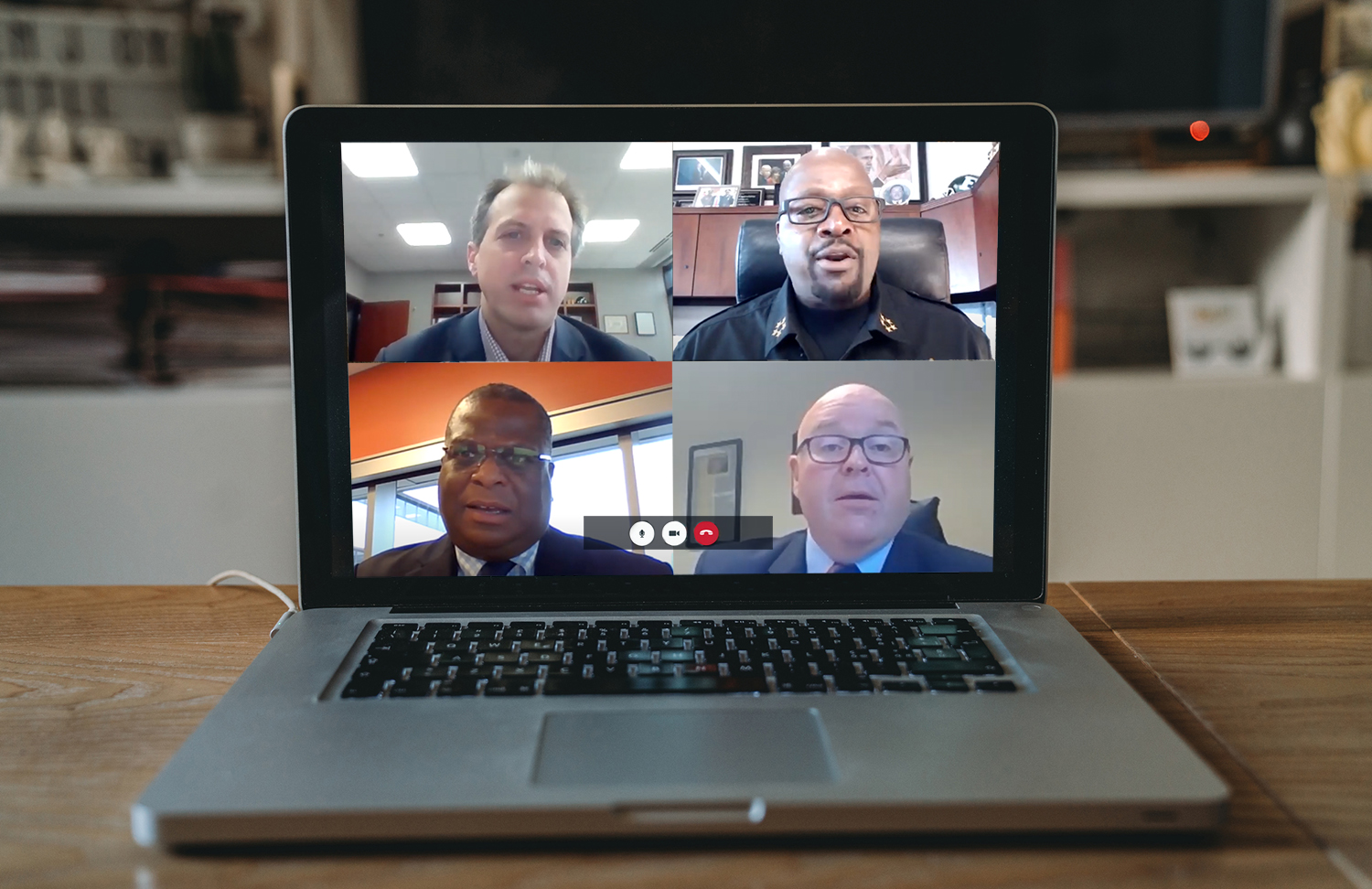
UPDATE: Due to time constraints, some submitted questions went unanswered during the presentation. Senator Irwin, Sheriff Clayton and Chief Hart submitted written answers to those questions, which are available here. This page also includes a video replay of the original presentation.
Probably no profession today is under the microscope more than law enforcement
The Washtenaw Economic Club this week peered through that lens and witnessed a wide-ranging and frank discussion of local policing as it relates to the issues of social and racial justice.
If there was a bottom line that came out of the hour-long webinar titled “Police Reform and Strengthening Community-Police Relations in Washtenaw County,” it was that police department personnel have to do a better job of getting to know the people they serve.
“Discussion like these are important because they help define the critical issues that help us set the foundation for better policing,” said Washtenaw County Sheriff Jerry L. Clayton.
Clayton was joined on the panel by State Sen. Jeff Irwin, D-Ann Arbor; Timothy S. Bourgeois, Director of the Michigan Commission on Law Enforcement (MCOLES); Michael Cox, Ann Arbor Chief of Police; Jerrod Hart, Saline Chief of Police, and Anthony Willamson, WCC Director of College and Career Readiness.
Moderators were WCC Senior Director of Public Service Training Joyce Van Meter and WCC Manager of Corporate & Community Engagement Loren Townes, lead organizer of the Washtenaw Economic Club, which is hosted by WCC.
Williamson, who spent more than two decades as a community activist for neighborhoods in Ypsilanti, was blunt: “Get out of the car more and talk to us,” he said. “Know who we are. Don’t make it just adversarial, don’t just pull us over. Stop and say hi. Know who I am. Engage the community.”
Williamson related a story about his now adult daughter who as a five-year-old saw police officers at an event as her friend. Now, at 23, she doesn’t want to see police in the community at all.
Chief Hart, who has been chief of police in Saline for three years, said some members of the community there didn’t want a visible police presence at a march through town. “These (comments) are heart-breaking to me. We have to find a better way to connect with our community.”
Saline earlier this year made headlines because of disparaging comments about Mexican residents made by an individual at a Board of Education meeting, prompting protests.
Chief Cox, who took the Ann Arbor job a year ago, said Ann Arbor’s community policing is a philosophy, a remark echoed by Sheriff Clayton during his comments about his department’s approach.
“So, how do we go about it? By officers getting out of their vehicles, going into the neighborhoods and basically showing themselves,” Cox said. “To build trust, the more we’re out there the more people will share what their fears are, what they are concerned about. It’s really important to hear the perspectives of the citizens.”
MCOLES executive Bourgeois emphasized continuing education as a key to better policing. Other professions, he noted, require it. Police should, too.
Sen. Irwin took a more sweeping view of today’s policing issues: “I think there are some really big ideas that deserve more discussion,” he said. “We need to cut to the heart of what drives negative interactions (between police and citizens) that sometime turn violent.
“I think we need to stop criminalizing poverty,” he continued. “If you look at what happens in our district courts what ends up happening is that people get caught up in the system. They get a little problem and a little problem becomes bigger problem. They’re unable to pay a traffic ticket, they don’t show up at court and all of a sudden they’ve got a warrant. Every time they are driving and get pulled over there’s a potentially dangerous situation.”
Irwin also said that he has sponsored legislation that would refer police excessive force complaints to the Attorney General’s office, replacing internal or outside police department reviews. “I think that the public needs that additional distance,” he said.
---
The Washtenaw Economic Club's next event is "What Happened on November 3rd: An insider's look at the election results and their impact on you," with longtime state capitol correspondent Tim Skubick. It will be held virtually at 11 a.m. on Thursday, Nov. 5. More information and registration is available on the WEC website.
